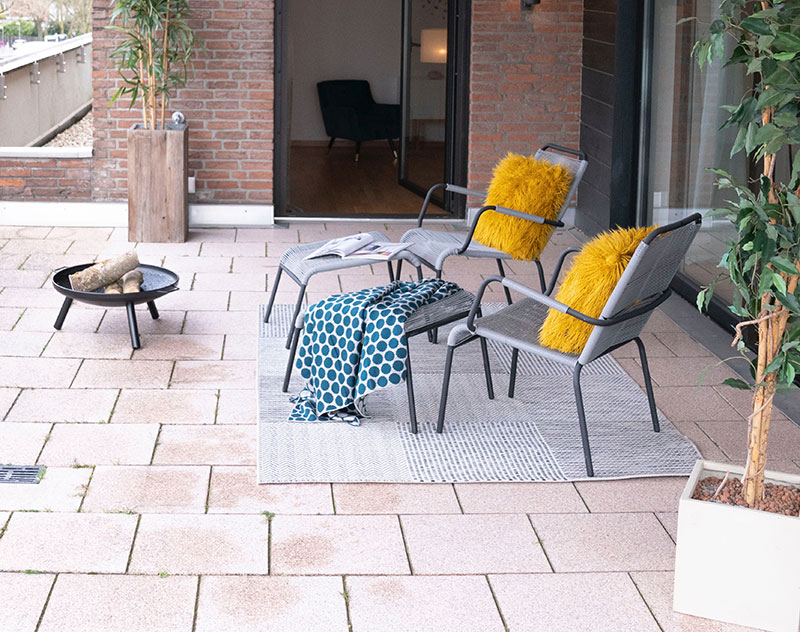Garden furniture needs to satisfy various criteria; for example, it must hold its own against the elements as well as resist wear and tear that would result from frequent use.
For gardens, Planted Well recommends metal furniture, calling it “an elegant and durable choice that fits most styles and budgets”. Still, how can you tastefully incorporate it into your outdoor space’s design? Here are a few ideas…
Mix metal with other materials
“Designing outdoor spaces is similar to interiors; proportions, comfort, functionality and durability are all important,” interior designer Aamir Khandwala tells Livingetc.
Hence, metal furniture intended for a garden doesn’t necessarily have to entirely comprise metal. You could, for example, attach metal furniture legs to a wooden base topped with soft furnishings. Khandwala enthuses that a good combination of materials “creates depth and interest”.
Create colored seating zones
One benefit of making your own garden furniture is that you could source metal components in a range of intriguing colors. This situation would open up a lot of scope for experimentation in how you use color with your outdoor space’s metal furniture setup.
If that space is particularly large, you could choose, say, yellow metal feet for seats in one area of it and then a pastel green for metal legs of seats intended to be placed in a different area.
Imbue your patio with an industrial vibe
Solid teak can work surprisingly well when attached to a chunky metal base, making for what Gardeningetc describes as “a statement table that is bound to turn heads.”
For evenings when you won’t be able to rely too much on natural illumination, you could affix a simple metal frame to the table, providing you with somewhere to string up festoon lights.
Give aluminum seating a nautical touch
As aluminum is an especially light metal, it would be well-suited for use in furniture you want to regularly move around, including between indoor and outdoor spaces.
If you do go for aluminum seats, you could cover their frames with woven rope to create something of a nautical look, as could be especially appreciated at a beachfront home.
Add ‘nifty shades of gray’ for a modern flourish
While black and white are obviously versatile colors, liberal use of them could risk leaving a space looking dull. Therefore, an appealing alternative would be gray, which remains understated in tone while still adding a bit of interest.
It can look especially apt alongside metal furniture, such as if you pair anthracite-colored cushions with metal frames when putting together an outdoor seating area.
Pair metal furniture with a parasol
One advantage of metal furniture — especially when used outside — is that protecting its condition can be straightforward. However, you still need to be careful to look after yourself when using this furniture.
If your garden is often bathed in sunshine, it would be wise to erect a parasol so that you can protect yourself from harmful UV rays — and add some color to help offset the potentially austere look of metal furniture.
